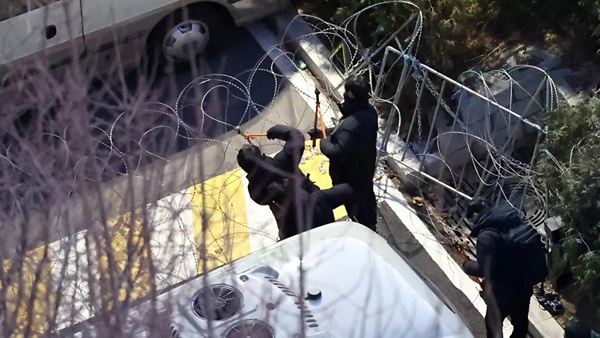President Yoon Suk Yeol was arrested on Wednesday as part of a criminal investigation into charges of insurrection linked to his short-lived declaration of martial law on December 3, 2024.
This marks the first time in South Korean history that a sitting president has been detained.
Yoon’s arrest followed weeks of political unrest and a standoff at his fortified residence in Seoul’s affluent “Beverly Hills” district.
The arrest operation, led by the Corruption Investigation Office for High-ranking Officials (CIO), involved over 3,000 police officers and investigators, who breached the compound’s security early Wednesday.
Impeachment and Martial Law Declaration
Recall that Yoon declared martial law in a late-night address on December 3, citing the need to protect South Korea from “anti-state elements” and accusing opposition lawmakers of paralyzing the government.
However, parliament reversed the order within six hours and voted to impeach Yoon, suspending his presidential powers.
The arrest warrant was issued after Yoon ignored three prior summonses. The warrant allows investigators to detain him for up to 48 hours until 10 a.m. Friday.
Further detention requires a new warrant, which could extend custody for up to 20 days. He is being held in solitary confinement at the Seoul Detention Center in Uiwang, Gyeonggi Province.
Yoon has labeled the investigation “illegal” and described his arrest as evidence of a “collapsed rule of law.”
In a video message released before his detention, he stated: “I decided to appear before the CIO, even though it is an illegal investigation, to prevent any unsavory bloodshed.”
Investigators confirmed that Yoon has refused to answer questions or allow sessions to be recorded. His legal team disputes the arrest warrant’s validity, arguing that the CIO lacks jurisdiction over insurrection charges.

Public Reaction and Political Divide
The arrest has deepened South Korea’s political divide. On Wednesday, protesters, both for and against Yoon, gathered outside his residence and the CIO office, braving sub-zero temperatures.
Anti-Yoon demonstrators celebrated the arrest with chants of “Resign” and “Take responsibility,” while supporters decried it as a breakdown of justice, shouting, “Stop the steal.”
A statement by opposition Democratic Party floor leader Park Chan-dae praised the arrest, saying, “This is the first step toward restoring constitutional order, democracy, and the rule of law.”
Yoon’s martial law declaration has plunged South Korea into political disarray.
Several key officials, including former Defense Minister Kim Yong-hyun, have resigned.
In recent weeks, thousands of citizens have protested, either supporting Yoon or demanding his removal.
The Constitutional Court trial, ongoing political investigations, and Yoon’s potential trial on insurrection charges leave South Korea at a critical juncture.
Analysts suggest the court’s ruling on Yoon’s impeachment could be pivotal in the country’s political future.



